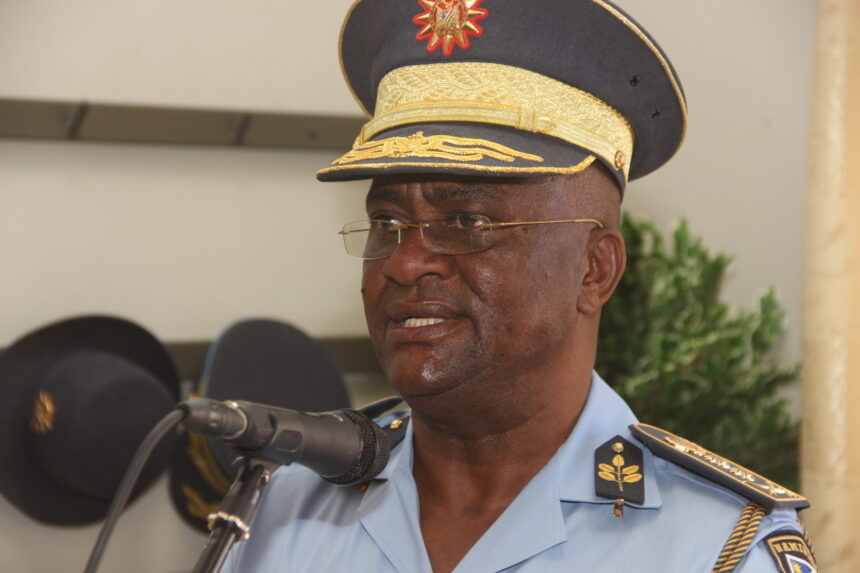The Rome Statute
Under the Rome Statute of the International Criminal Court (ICC), “intentional attacks against personnel, installations, material, units or vehicles involved in a humanitarian assistance or peacekeeping mission in accordance with the Charter of the United Nations” that are entitled to civilian protections are war crimes in both international and non-international armed conflicts.
Among other things, the Rome Statute sets out the crimes falling within the jurisdiction of the International Criminal Court (ICC), the rules of procedure, and the mechanism for states to cooperate with the ICC.
Article 87(7) of the Rome Statute also provides: “Where a state party fails to comply with a request to cooperate by the court contrary to the provisions of the statute, thereby preventing the court from exercising its functions and power under the statute, the court may make a finding to that effect and refer the matter to the assembly of state parties or, where the Security Council referred the matter to the court, to the Security Council.”
In this connection, Israel signed the Rome Statute on 31 December 2000 but did not ratify it. A further 30 countries have signed but not ratified the Rome Statute as well.
The law of treaties obliges these states to refrain from “acts which would defeat the object and purpose of the treaty until they declare they do not intend to become a party to the treaty.
Non-state parties to a conflict are also obliged to respect the norms of customary international law.
At all times, it is forbidden to direct attack against civilians; indeed, to attack civilians intentionally while aware of their civilian status is a war crime.
Attacks on UNIFIL
The United Nations Interim Force in Lebanon (UNIFIL) is a peacekeeping mission in south Lebanon that the UN Security Council established in 1978. The Security Council expanded the original mandate to confirm Israel’s withdrawal from Lebanon after the 2006 war between Hezbollah and Israel. Under its expanded mandate, UNIFIL forces were to monitor the cessation of hostilities and help ensure humanitarian access to civilians and the return of displaced persons.
As such, the United Nations (UN) peacekeepers in south Lebanon have long played a critical civilian protection and humanitarian role there. On 5 October 2024, satellite imagery analysis found that new Israeli military activity was visible near UNIFIL position 6-52 where at least 30 military vehicles of the Israeli Defence Force (IDF) were present near UNIFIL position. On 6 October, UNIFIL publicly raised concerns regarding Israel’s military activities immediately adjacent to its mission’s position southeast of Maroun el-Ras in Lebanon.
Additionally, on 9 October, the Israeli forces deliberately and repeatedly fired at UN position 1-32A in Ras Nagoura. On 10 October, UNFIL Nagoura headquarters and nearby positions were repeatedly hit.
Two peacekeepers were injured after the Israeli Defence Forces (IDF ) Merkava tank fired its weapons towards an observation tower at UNIFIL headquarters, directly hitting it and causing UN peacekeepers to fall. The attacks follow an Israeli military request to UNIFIL to relocate more than five kilometres from the Israel-Lebanon border “as soon as possible, in order to maintain their safety”, which the UN peacekeeping chief totally refused.
Laws of war
UN personnel involved in peacekeeping operations, including armed peacekeepers, are civilians under international humanitarian law, also known as the laws of war, and are entitled to all civilian protections. The laws of the war require parties to the conflict to take constant care during military operations to spare the civilian population and to “take all feasible precautions” to avoid or minimise the incidental loss of civilian life and damage to civilian objects.
These precautions also include doing everything feasible to verify that the objects of attack are military objectives and not civilians or civilian objects, giving “effective advance warning” of attacks when circumstances permit, and refraining from an attack, if notably, the requirement for proportionality will be violated.
In summary, in Gaza, more than 42 000 innocent Palestinians and 11 300 children have been killed in Israeli bombings and attacks; thousands are buried under the rubble, and others are threatened by illnesses. However, 30% of the 11 300 children killed in Gaza were younger than five years. Currently, Gaza has the highest rates of child malnutrition globally. In the occupied West Bank, 164 Palestinian children have been killed also.
Since October, more than 280 aid workers, the majority of them staff members of the UN Relief and Works Agency, have been bombed and killed in Gaza alone.
As of 11 October 2024, the Committee to Protect Journalists (CPJ) preliminary investigation showed that at least 128 journalists and media workers were killed in the West Bank, Gaza, Israel and Lebanon since the war began.
On 19 July 2024, the International Court of Justice (ICJ) found that: “It is plausible that Israel’s actions amount to genocide, and Israel’s occupation and annexation of Palestinian territories are unlawful, and its discriminatory laws and policies against Palestinians violate the prohibition and racial segregation and apartheid.”
In Lebanon, with over 2 000 civilians killed and over a million displaced since September 2024, the Lebanese government must file a declaration with the International Criminal Court (ICC) registrar accepting the court’s jurisdiction over the serious crimes committed on Lebanese territory since then.
UNIFIL must continue to fulfil its crucial civilian protection and humanitarian functions. The United States, Israel, the collective West and neoconservatives (the neocons) must ensure that preventing atrocities and genocide is at the centre of their response to the hostilities.
They should suspend military assistance and arms donations to apartheid Israel, given the real risk that they will be used against UN personnel, civilians and journalists and commit atrocities and genocide across the Middle East. The international community must now take immediate action against the apartheid Israeli regime.
*JB Tjivikua is a retired major general of the Namibian Police.



